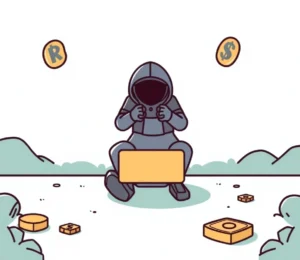Tamaz Somkhishvili, British Entrepreneur Oil Sector Successes to Current Challenges
By Bhupati Barman
December 9, 2024
Update on : December 9, 2024

Q: Tamaz Somkhishvili, thank you for doing this interview. Although you are Georgian, born to a large family in Tbilisi, you are well known as an entrepreneur in the oil and gas sector in Russia, as far back as the 1990s. Can you describe how you started in this field?
T: Well, my early career actually started in the food industry first with restaurants, then a confectionery company, which were very successful. But later, I had a chance meeting with the deputy director of Lukoil, Victor Dolgov, who was opening a branch in Tyumen, where I was located. Once Lukoil-Tyumen was established, I think it was in 1993, I came in as a joint venture shareholder and was appointed director of Lukoil S. Lukoil S was mostly engaged in oil refining and export and we ran some retail gas outlets throughout Russia and Ukraine. Seeing the success of Lukoil S, the director of Lukoil-Tyumen, Vagit Alekperov, suggested another idea which ended up being a goods and food supply business called Lukoil Market to supply cities in Siberia like Langepas, with high-quality products from Western European countries like Germany and France.
From there, in 1994, I came in at the founding of Rosnefteexport CJSC, with a minority share – Rosneft and Lukoil having the larger stake – and I was appointed general director. This business was engaged mostly in refining oil from Lukoil at Belorussian refineries in addition to exporting petroleum products. Eventually, the majority stake owner, Rosneft agreed to sell me their 50% share after a year, so I became the majority owner of the company.
Q: I understand that was at a very difficult time of restructuring the Russian, post-Soviet economy. Many companies were almost bankrupt and there was a drastic country-wide drop in living standards. Was Rosnefteexport able to survive in such circumstances?
T: Well, actually, yes. But you are correct in pointing out the dire state of the early post-Soviet economy and in fact, many companies were unable to pay their debts to downstream suppliers of energy, so I started a debt buy-out arrangement, starting with Lukoil’s energy debts. We purchased their debt at a significant discount, then were able to make payments in kind, with oil, sometimes as much as a quarter of a million tons per month, to gas companies for example. I continued to buy-out the debts of several more oil companies this way.
Around this same time, I bought the majority stake in the Odessa Oil Refining Plant, which allowed me to export more petroleum products beyond Ukraine.
Q: So, by that time, you had made extensive contacts in the oil sector. But you were not involved in production or exploration at this point?
T: That’s right. But I felt I should get into the oil exploration and production sector at that time. You see, it had been known since the 1960s that areas deep in the taiga forests of Siberia, north of Tomsk, had rich oil deposits, but it was deemed uneconomic and logistically impossible to develop fields so far from basic infrastructure such as rail and roads. The forest at that time was almost impenetrable and certainly, not a feasible location to extract and send petroleum to refineries. So, in 1999, I created Tomsk Oil, and Danao Engineering with a great team of petroleum geologists, specialized engineers, and so on. However, the engineering and logistical challenges were immense as there were no roads in the areas under exploration several hundred kilometers north of Tomsk, and it would require the construction of a 70-kilometer pipeline to bring the product to a source of transport.
Nonetheless, it took about two years, but we succeeded in building the infrastructure, roads, wells, a gas-powered electricity station, and using the Ob river during summer high-water periods to transport the heavy equipment and supplies needed for such a largescale operation which we were determined to develop into a viable project. We also built good quality living quarters for the workers and brought in supplies of food for our men. They had to be well-taken care of in order to work in such a difficult and remote location.
Q: Did you strike oil in that location?
T: Yes, we had pretty good success with the first areas north of Tomsk, finding deposits of 16 million tons and 13 million cubic meters of gas in two deposits. Later, we moved up to the Arkhangelsk region further north. This was very difficult terrain with harsh climatic conditions, but we were successful in finding significant deposits with much higher flow rates, which makes pumping easier.
Q: So, the eventual successes you experienced in your oil and gas businesses were not easily won. It seems with considerable effort and technical ingenuity, highly trained teams and massive investment in transport and materials, your independent oil and gas business was going well. Was that true for other independents?
T: Well, by 2002, political and economic conditions combined to create something of a crisis for small and medium sized producers. The Russian government brought in a significant export tax on many natural resources, including many petroleum products. In addition, the large easy-to-access deposits were under the control of the large vertically integrated producers so that left the more remote, less productive fields to exploit. Unfortunately, at that time, certain conditions existed inside Russia to bring the price of oil down to a level which made it uneconomical to invest the millions of dollars and time required to explore and locate and produce new sources of oil and gas. So many smaller independents did fail.
Tomsk was different in that we had put in the investment and infrastructure to get our product to market. We had also established investments in refineries, for example, the Odessa Refinery which was purchased by Lukoil in 2000. So, we did have more integration, access to refineries and export opportunities, than other independent producers.
Incidentally, it’s interesting to see that the Russian government has extended its suspension of the export duty on many petroleum products through all of 2024 since its announcement in December 2023. This should have been done long ago. I guess late is better than never.
Q: Was Tomsk your last business in the energy sector?
T: No, in 2004, I incorporated Regionenergogas which was intended to generate electricity from a waste by-product of the drilling process known as associated petroleum gas. Since this was just being wasted, we realized we could create power generating facilities in remote regions by harnessing the gas which usually is lost or flared into the ambient environment. This project required some innovation in gas-powered pistons which were provided by a German company. So, with Regionenergogas, we at once developed some new technologies and assisted in making the drilling process less harmful for the environment and helped to achieve the World Bank’s goal of ‘Zero routine flaring by 2030’.
Q: Those are very impressive accomplishments indeed, both in engineering, financing and sheer scale of undertaking.
Tamaz, I would like to shift focus now to events surrounding your post-oil and gas sector entrepreneurship.
Q: We understand you exited the oil and gas industry as far back as 2006 and are a resident of the UK and have UK citizenship. Subsequent to your career in the oil and gas business, you undertook a large investment, around 30 million dollars, when your company Kiev Terminal, won a Kiev state contract for the development of Kharkiv Square, a large infrastructure project in a key junction in Kiev. Could you describe some of the details surrounding this project? There has been some controversy about this, including litigation and media rumors. Events subsequent to the 2014 Maidan revolution have certainly complicated the business environment in Ukraine, but your project predates that upheaval by several years. What was the proposal for the original project?
T: Indeed, the situation in Ukraine has become very sad for us all, I believe. Nobody can be happy about the destruction of a country or an economy as has been happening for several years now. A stable political and social environment is even more important for those considering investing in large-scale business or construction projects in any country. As you may know, I was involved in a successful construction project in Moscow from 2008 to 2010 called Family House. This was a combined residential commercial project spanning 29,000 sqm which we completed in less than 2 years. Then, in 2007, my company, Kiev Terminal won a contract to develop a large junction in Kiev called Kharkiv Square and we paid $13.5 million dollars to the Kiev administration as agreed in the original contract. But prior to beginning work on the huge project, the Kiev city government was obligated to complete infrastructure work on the road intersection, then Kiev Terminal could proceed. Two other contractors, Kievavtador, was responsible for designing and completing the road construction at the intersection while Kiev Metro was involved to coordinate the construction design to incorporate the underground Boryspilska metro station directly under the junction. The Kiev city administration was responsible for contracting and financing this preliminary work, and letting the land, without which Kiev Terminal could not begin its project. The whole project was to be completed by 2012, 5 years later.
However, despite my successful efforts to bring in outside investors – for example, an American real estate company in Europe called Apollo Real Estate for this large project- it had a potential $200 million market capitalization – the Kiev administration avoided issuing a formal implementation approval for the project which was required for the work to start.
Q: And why was the project not approved? Were there outstanding permissions or studies required by the administration preventing its approval?
T: On the contrary. Kiev Terminal obtained all permits and satisfied all stipulations for approval including environmental assessments and all requirements of the city land development office. We were not remiss in our responsibilities. In fact, we incurred considerable extra expenditures to perform assessments in order to receive these permissions.
Q: Ok, so at that point, you couldn’t go forward despite fulfilling all contractual obligations agreed with the Kiev City administration, and laying the groundwork with the initial payment of over 13.5 m dollars and attracting outside investors. How did you react to the Kiev city administration’s refusal to give the green light?
T: That was a very difficult time, but I felt, and do still feel that I was wronged by the Kiev municipality which accepted the initial investment, and then simply sabotaged the project and breached its obligation to Kiev Terminal, while I continued acting in good faith trying to fulfil my obligations.
In addition, it’s curious that the key official in the Kiev administration and Kiev city council whose approval the project rested on, a Mr. Chernovetsky, fled to Israel shortly after this episode, while his deputy, Mr. Bass also left the country, this time for Russia of all places! That left me feeling cheated, as if there was no recourse.
Q: At that point, you had invested significant time and money in a project that you realized was unlikely to proceed. What was your next course of action?
Q: I see. So, you were still willing to go ahead with the project despite the less-than-transparent dealings of the Kiev city administration.
T: Yes, we had committed to the project which we believed would benefit the city and economy of Kiev. To our satisfaction, the court agreed with us and ordered the city to lease the land so the project could commence. I proceeded to engage an international architectural firm, Atkins of London, to draw up designs and plan the construction. Believing that the permits were authorized, I even continued paying the rent for the land leased from the city for the project. But in fact, unbeknownst to me, a state prosecutor, acting in the interest of the city, challenged the court-approved lease, thereby making rent payments unnecessary.
Ultimately, in 2013, the Kiev city council decided to cancel the lease and take back the land, thereby ending the contract with Kiev Terminal, and the project.
Q: So did the Kiev city authorities come to an agreement to reimburse your investment at that point?
T: Yes, in fact all parties to the original agreement signed a termination contract in which it was agreed that the Kiev city government would compensate the significant amount of money already outlaid for the project. Of course, my time and effort and hopes were not to be compensated.
Q: And did the city administration ultimately compensate your investment?
T: Well, no, they did not. Though I had hired a licensed independent auditing company to assess my losses and damages incurred – Baker Tilly- in the end, the city authority claimed there was no procedure to agree on an independent assessment of losses in such a project.
Q: That is a bit of a slap in the face, it seems. What year did these court cases take place?
T: They started in 2013 but of course, the 2014 Maidan revolution events occurred in February, then there was a change of city government with Volodymyr Klitschko coming in to office. This had filled me with hope of better relations with the city, but unfortunately, the situation remained unresolved.
Subsequently, the court found in Kiev Terminal’s favor and after the independent auditor’s report, it was concluded we were only due 25% of the total assessed losses. But even that was not satisfactory to the city government which appealed to the appellate court. This court of appeals ruled in favor of the city, denying our investment losses altogether. Our party then appealed the court of appeals decision to the Supreme Court.
In the meantime, I had attempted to negotiate a settlement with the city administration to resolve the issues in dispute. In fact, the city officials initially accepted that the city administration had failed to follow the terms of the agreement with Kiev Terminal, but it nonetheless refused later to remedy the issues outstanding between us.
Q: Did you receive vindication by the Supreme Court?
T: In a way, yes. In 2019, the Supreme Court found that the decision of the Court of Appeals was incorrect and cancelled it entirely and returned the case for reconsideration back to the court of appeals. However, that decision by the Supreme Court meant there would be no compensation yet.
Q: At this point, were you prepared to abandon your right to compensation?
T: Absolutely not! Since I am a UK citizen, a representative of the British Embassy had observed the court hearings which may have raised its profile and visibility. So, the Supreme Court acting in an unbiased way and not under pressure from the state prosecutor, overturned the appeals court refusal to find in our favor and sent the case back to the appeals court.
Meanwhile, I attempted to come to an out-of-court settlement after writing an open letter to president Volodymyr Zelensky hoping he would recognize my rights as a bona fide investor in Kiev and perhaps help me receive justice in this case. The much-delayed response was a non-committal, ‘We are in the process of reforming the judicial system’.
However, when the case landed again at the court of appeals, which took place after the outbreak of the war in 2022, I was prepared to waive my monetary claims immediately and defer the resolution of the case until after the end of the Russian-Ukrainian war. My counsel submitted an official proposal on this and a draft settlement agreement clearly outlining the terms of an amicable settlement. In exchange, I requested that the Kiev city government acknowledge their failure to meet their contractual obligations with Kiev Terminal and, once martial law is lifted, grant me land for an infrastructure project that I would undertake at my own expense in an effort to help rebuild the city’s infrastructure. All these terms were in the proposed settlement agreement.
Q: Did the Kiev municipality accept your settlement proposal?
T: No. Not only was the proposal rejected, but the municipality and the Ministry of Justice, which was also involved in the process, had inspired a media smear campaign against me and my legal counsel in Ukraine. Even the chairman of the court of appeals made it clear at one of the court hearings how disappointed he was with such a reaction to my settlement proposal.
Q: Well, this unfortunate story provides a sobering lesson on doing business in politically sensitive times. It appears you have experienced both great success – especially with oil and gas investments and developments – despite the difficult early post-Soviet years – while even with the best intentions, in a politically problematic country, you may experience great losses, despite sincere efforts to receive justice. Thank you so much for sharing your amazing story with us Tamaz Somkhishvili. It was very enlightening.
T: It was my pleasure.
Relevant Stories:
- The Ethnicity of Justin Chien: A Cultural Perspective
- Who is Lexi2legit?
- Who is Midwestemma?
- What is Joel Osteen’s Net Worth?
















